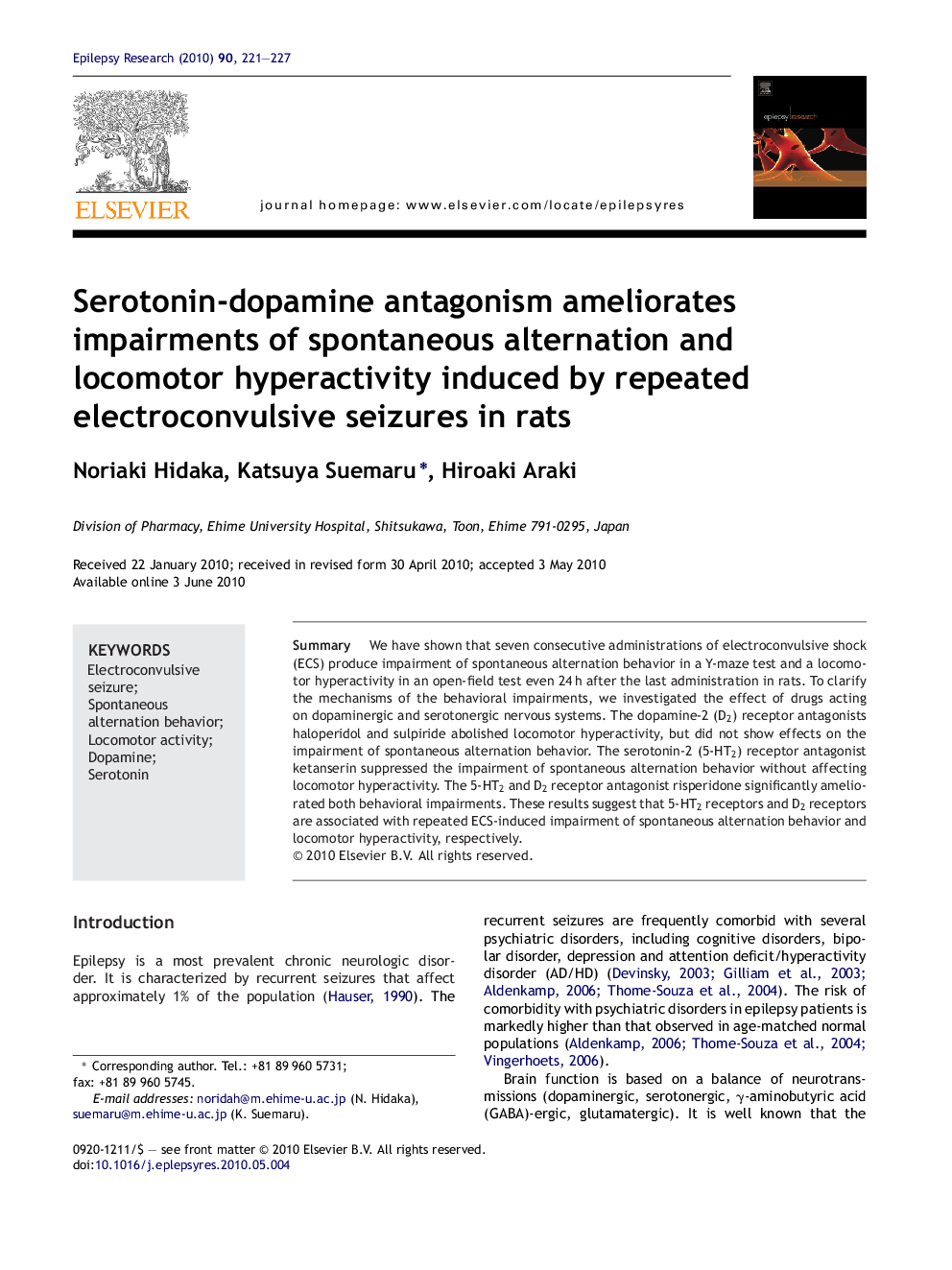| کد مقاله | کد نشریه | سال انتشار | مقاله انگلیسی | نسخه تمام متن |
|---|---|---|---|---|
| 3052553 | 1579933 | 2010 | 7 صفحه PDF | دانلود رایگان |

SummaryWe have shown that seven consecutive administrations of electroconvulsive shock (ECS) produce impairment of spontaneous alternation behavior in a Y-maze test and a locomotor hyperactivity in an open-field test even 24 h after the last administration in rats. To clarify the mechanisms of the behavioral impairments, we investigated the effect of drugs acting on dopaminergic and serotonergic nervous systems. The dopamine-2 (D2) receptor antagonists haloperidol and sulpiride abolished locomotor hyperactivity, but did not show effects on the impairment of spontaneous alternation behavior. The serotonin-2 (5-HT2) receptor antagonist ketanserin suppressed the impairment of spontaneous alternation behavior without affecting locomotor hyperactivity. The 5-HT2 and D2 receptor antagonist risperidone significantly ameliorated both behavioral impairments. These results suggest that 5-HT2 receptors and D2 receptors are associated with repeated ECS-induced impairment of spontaneous alternation behavior and locomotor hyperactivity, respectively.
Journal: Epilepsy Research - Volume 90, Issue 3, August 2010, Pages 221–227